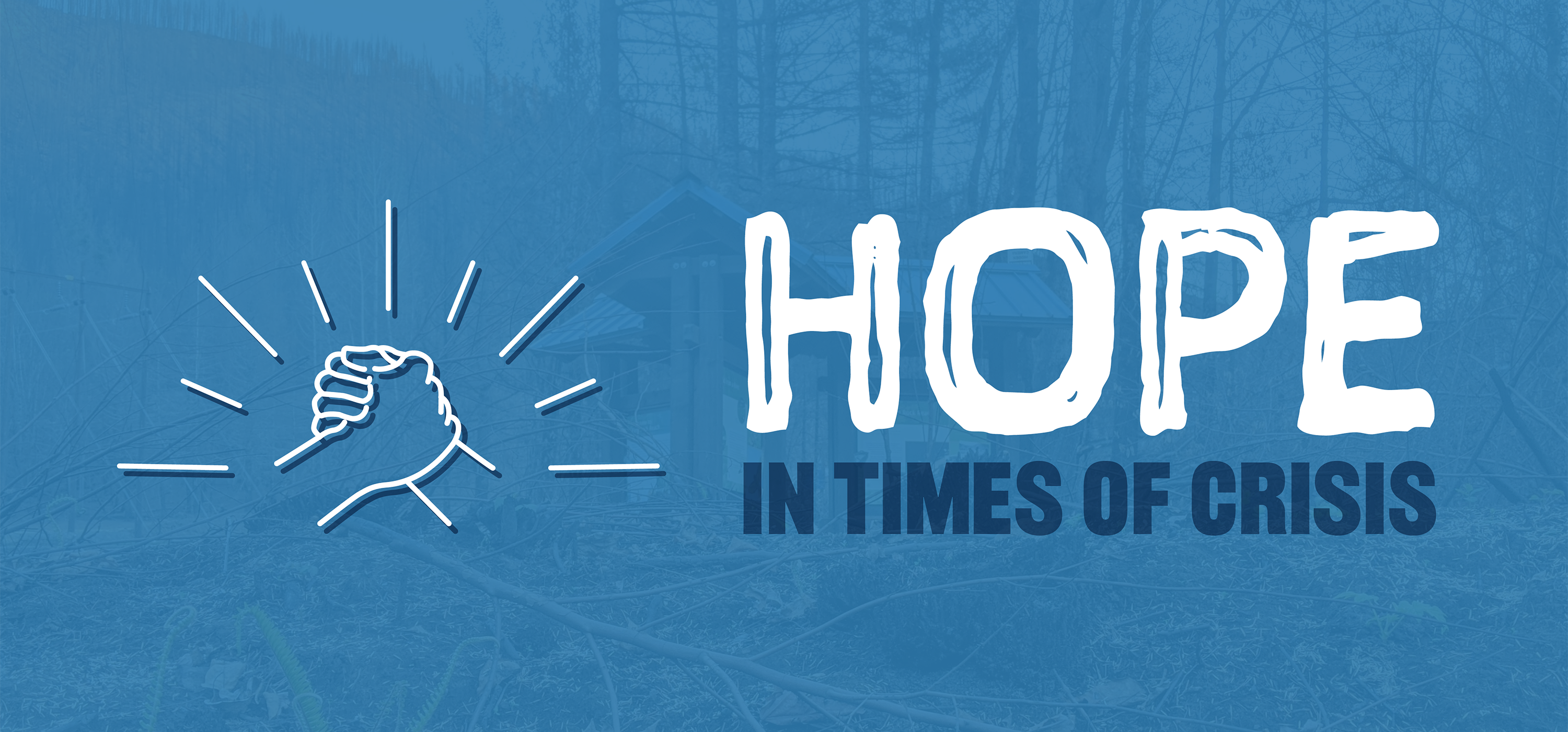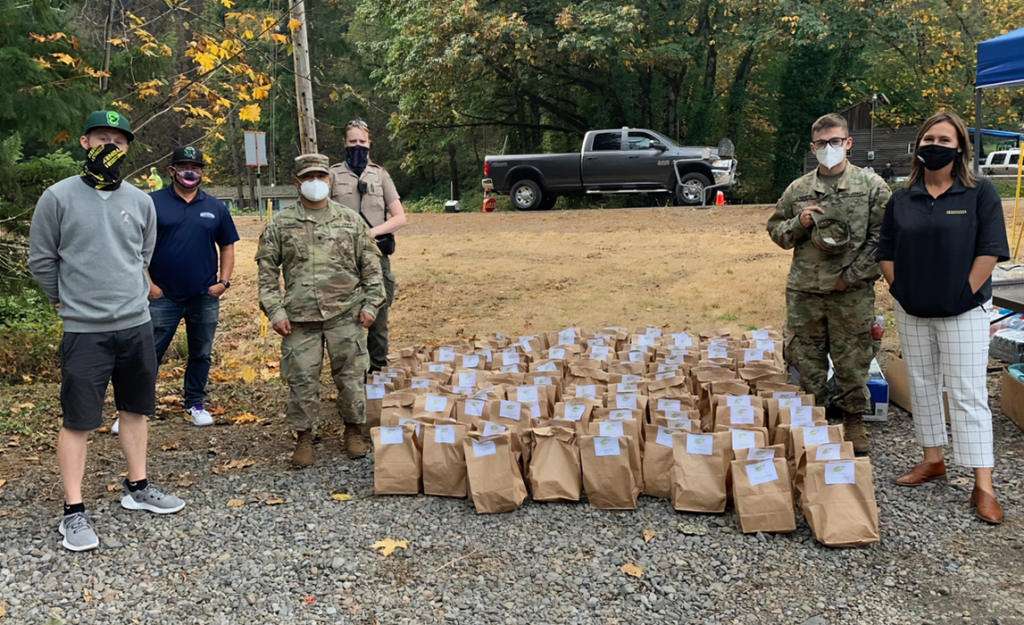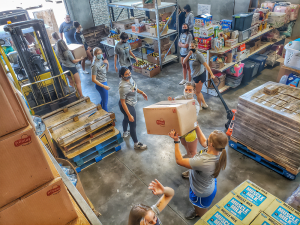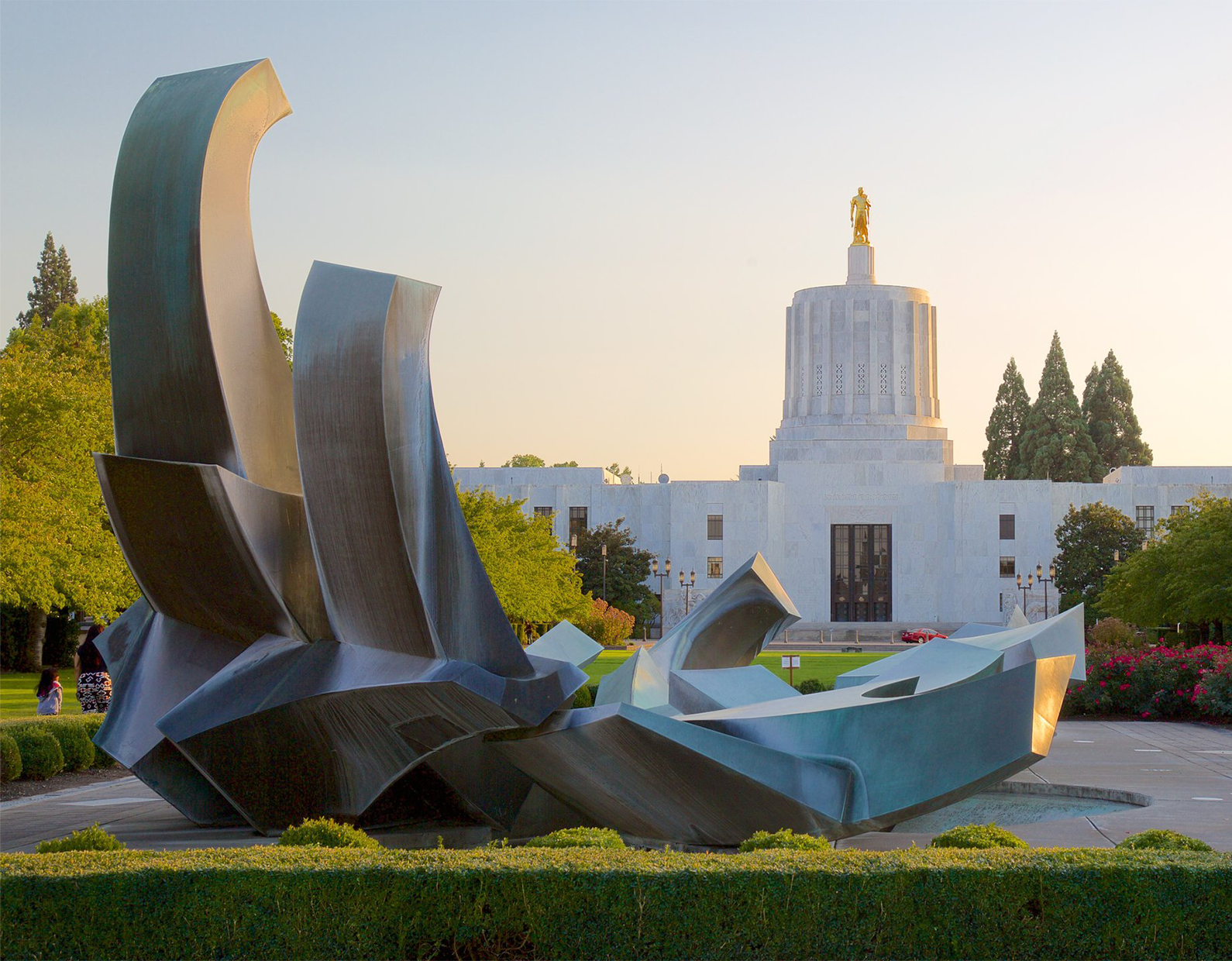
Feature
Hope In Times of Crisis
article by Cara Roberts Murez
As the Holiday Farm Fire raged out of control in small towns nestled along the McKenzie River and the adjacent forests just after Labor Day weekend, firefighters worked against the winds to bring the flames under control.
The community sprang into action to do whatever it could to help.
At McKenzie River Trust, a nonprofit land trust dedicated to land conservation, staff used the group’s social media network and extensive connections to swiftly gather supplies, encourage donations, and coordinate volunteers.

“We live in an incredible community that wants to help,” said Kali Kardas, communications manager for McKenzie River Trust, “and that is at every level from our local government to our local utilities, to our local nonprofit agencies”.
The morning after the fire began, McKenzie River Trust staff began calling displaced residents as well as partners in the U.S. Forest Service and McKenzie Watershed Council.
“We have a lot of members and volunteers that live along the McKenzie corridor,” Kardas said. “Step one was to check in with as many people as we could and then disseminate any information that was coming. We knew very little for the first several days, but we tried to do the best we could.”
McKenzie River Trust distributed information about evacuations, shelters, and barns that had space for farm animals. They quickly arranged food collections, gathered volunteers, and fielded calls from food trucks and other businesses that wanted to help. More than one thousand volunteers signed up during the first couple of weeks to fill shifts at shelters and donation centers.
“Even though the fires were very sad and scary, it was deeply moving to see how quickly the community responded and how many people were just so eager to help,” Kardas continued.
The nonprofit also asked its donors to give to the United Way of Lane County Wildfire Relief fund set up to help nonprofits serving the affected area and the community with both immediate needs and later recovery efforts. Kardas estimated that the fund has raised at least $900,000.
United Way of Lane County reported in early October that it had distributed almost $475,000 to 39 community organizations and plans to shift its focus to recovery and long-term needs.
Though McKenzie River Trust is among the neighbors that had property damage, their focus will remain on assisting the evacuated and displaced residents.
“The land will recover, we will find a way to help restore nature,” Kardas said. “The real need right now is with people who have lost their homes.”
Teaming Up to Make a Difference
Meanwhile, collaborators from Kendall Auto Group, the Eugene Emeralds, and The Hope Project dropped everything. The trio had worked together on other efforts and felt driven to do whatever was needed to support the people forced to evacuate their homes.
Soon after the fire began, Allan Benavides, general manager for the Eugene Emeralds baseball team, got a call from Ken Brown at The Hope Project. Minutes later, he heard from Amy Newport at Kendall Auto Group.
“We already know to reach out to each other,” said Newport, the community outreach director for Kendall. “We were all just saying, ‘We want to do something to help. We don’t know what that is, but we’re going to go find out.’”
The trio called their connections at local hotels, which were housing evacuees, and began marshaling resources via social media and gathering donations at Kendall’s Chevy store. They quickly filled a 24-foot trailer from floor to ceiling with supplies. And the donations kept flooding in.
 The team set up their own distribution areas at four local hotels to coordinate meals, serve breakfast, sign up volunteers, and hunt down specific requests (i.e, diapers, pet supplies, coffee, water, etc.).
The team set up their own distribution areas at four local hotels to coordinate meals, serve breakfast, sign up volunteers, and hunt down specific requests (i.e, diapers, pet supplies, coffee, water, etc.).
“Everybody just started reacting,” said Brown, executive director of The Hope Project, a local nonprofit dedicated to quick response to emergent needs. “I think while we may have been a little bit the face of that, just because we were the nonprofit that things were coming through, behind the scenes every one of us and every one of our teams kicked into full speed… I don’t know that we knew what to do as much as we reacted every hour to the situation.”
The group also put together small events – princess and superhero parties, a trunk-or-treat activity—to bring the families a little joy. Their teams continue to provide cleaning supplies, deliver donated new refrigerators, paper products, new insulation, and carpet to those in need.
When there was an ask, the word ‘no’ was never a consideration. It was always ‘yes,’” Benavides said. “Yeah, we’ll be there. We’ll figure it out.”
“It’s emotionally draining,” Newport added. “Your heart is just breaking for these families and hearing the stories. But these two right here, when one of us was feeling tired, you would just feed off each other’s energy and also just seeing the community come together. I know for me, that was what would fuel me.”
Altogether, they estimate they raised $200,000 in cash and probably about that same amount or more in goods.
“You could look out at night and see the glow of the fire and the smoke,” Brown said. “And then you realize that an entire town, a city, is just gone off the map. It was a ‘we’re all in this together’ type of thing. It was our community. And they jumped on board.”
Rising from a Valley of Ashes
The flames are out, but the work is far from over in the McKenzie River Valley communities badly damaged or destroyed by the Holiday Farm Fire.
McKenzie River Trust has been there in the community, preserving land since 1989. As the group works to restore its own property where trees and other vegetation were wiped out, along with 150 logs meant for a restoration project next June, staff are helping the communities around them.
“For 30 years, McKenzie River Trust has been protecting land along the McKenzie corridor. The people who live there are very important to our organization, whether they are a landowner or they volunteered time or they’ve given,” said Kali Kardas, MRT communications manager. “We rely on the community to invest in us and we feel very strongly that when that community has a need, it is our role to invest back in them.”
After emergency needs of food and shelter were met, McKenzie River Trust staff members hit the ground with the McKenzie Watershed Council and EWEB’s Pure Waters Program doing assessments on landowner properties.
The assessments take stock of hazardous conditions, including tree snags, debris, and soil erosion. They make recommendations on erosion control. There’s a concern about winter landslides on the burned landscape.
Fire recovery takes a long time. Kardas said the nonprofit has reached out to agencies in California that have dealt with the aftermath of large fires in recent years, seeking advice.
The land itself is still too dangerous to have volunteers working on it. As time passes, the organization will have volunteers planting vegetation and doing clean up.
“We hope to execute a solid recovery plan along with all the other people that are making it happen,” Kardas said. “It definitely takes a village, it takes a community.”










